By BETSY TAYLOR
When the Sisters of Mercy founded Saint Joseph's Hospital in Atlanta in 1880, they developed a reputation for caring for the region's poor and sick both inside and outside of the hospital, going where there was need.
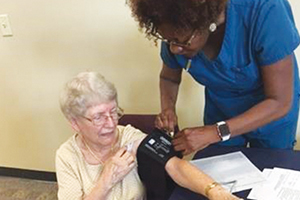
Harriett Ogbodo, an Emory Healthcare nurse who does faith community nursing, checks a patient's blood pressure at a stroke awareness health fair held last year at Gracepointe Nazarene Church in Loganville, Ga.
A new faith community nursing program at Emory Saint Joseph's Hospital allows caregivers there to return to the hospital's roots in an updated way, by caring for patients in community settings and reaching out to them beyond the hospital environment.
Faith community nurses are licensed registered nurses specially educated to practice holistic care for themselves, others, and communities, using nursing knowledge combined with spiritual care. Faith community nursing is an updated way to describe parish nursing, which includes the integration of nursing within a religious community. Traditionally faith community nurses team up with their own church, mosque or synagogue, or another in their region, to assist people in the faith community often by answering questions and educating about health.
Emory Saint Joseph's Hospital is expanding on that, using members of its nursing staff trained as faith community nurses to provide intensive follow-up with select chronically ill patients and to teach diabetes prevention classes in the community. (Emory Saint Joseph's Hospital is a Catholic facility that is part of a joint operating agreement. Nonprofit Emory Healthcare has 51 percent ownership in the partnership, and Trinity Health, the Catholic nonprofit, has 49 percent ownership.)
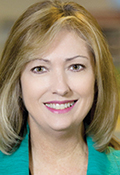
Heitkam
Rebecca Heitkam, a registered nurse who is the specialty director of congregational health ministry and nursing support at Emory Saint Joseph's Hospital as well as its faith community nursing coordinator, is behind the robust expansion of faith community nursing and nursing outreach in Atlanta.
In 2015, Heitkam studied at a two-day community health educational program in Memphis, Tenn., and then at a six-day weekend program in Georgia, where she learned about faith community nursing. She was Emory Saint Joseph's director of oncology at the time.
Not long after the training, she heard Emory Healthcare's then-President and Chief Executive John Fox talk about the importance of health care providers reaching out to educate people about wellness and care for people outside of a hospital setting. A light went off for Heitkam. In addition to providing hospital-based care for the sick, nurses employed by the corporate parent Emory Healthcare might embrace the opportunity to get involved in preventing avoidable hospitalizations through better management of chronic conditions.
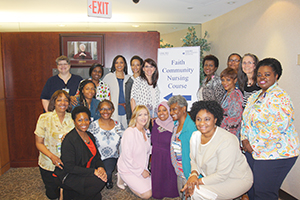
A group of nurses pose for a picture to mark their participation in the first faith community nursing certification class held last April at Emory Saint Joseph’s Hospital in Atlanta.
Ramping up
With support from system and hospital leadership, she developed a plan to educate Emory Healthcare's nurses in faith community nursing, so they could go out into their own faith communities as a health resource for others.
Heitkam completed a round of training at the Westberg Institute for Faith Community Nursing in Memphis to become an affiliate faculty member at the institute.
In 2017, Heitkam and other instructors taught two cohorts of nurses — 140 in April and 73 in October — at the hospital. The health care system now has 213 nurses newly commissioned in faith community nursing. Emory Saint Joseph's Hospital paid for the training, including materials, books and meals. The 40 hours of training spans five days.
Topics included healing and wholeness, behavioral health, family violence, grief, community health needs and ethical and legal aspects of faith community nursing, according to an Emory website.
Part of the education of faith community nurses includes preparation for how to encourage behavioral changes, how to assess a patient over the phone and how to tend to the spiritual well-being of the patient.
From classroom to community
An Emory Saint Joseph's ministry called Congregational Health Ministry is drawing on the pool of faith community nurses to staff two new efforts: a community-based diabetes prevention program and a nurse navigator program to assist chronically ill or frequently hospitalized patients. The nurse navigators and diabetes program facilitators have taken part in additional training and they are paid to staff diabetes education sessions and to perform nurse navigator functions, Heitkam said. The Congregational Health Ministry collaborates with area congregations and communities to provide health education, screenings and assistance with care outside of the hospital. The faith community nurses staff many of these efforts. Some of the time is volunteered, and some is paid.
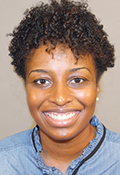
Banks
Congregation and community outreach
CaTiffaney Banks, program manager of Congregational Health Ministry, said 25 to 30 of the faith community nurses will begin teaching the Centers for Disease Control and Prevention's national diabetes prevention program at several locations in the region.
The evidence-based program encourages behavior change, like dieting and exercising to promote weight loss and prevent Type 2 diabetes. Emory Saint Joseph's is piloting the program for its own employees and a few of their family members. Several faith community nurses currently are taking part in the pilot as program participants. The diabetes education program for employees expands into other Emory Healthcare hospitals this month. By late spring, the plan is to offer the diabetes prevention course on five Emory Healthcare campuses, Heitkam said.
After the pilot, about 25 of the nurses will begin teaching the program this year, fanning out to reach people in church halls, community centers and other locations. They'll be tracking health results of participants. The instructors will be paid for an hour of preparation and travel time and for an hour of teaching the class each time they do.
Banks said the diabetes educators are eager to start teaching. "I think our nurses are really dedicated to their communities. No matter how busy they are, I think that's just the nursing attitude," she said.
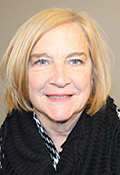
Burnham
Part-time nurse navigators
Beginning this month, the health care system will launch the faith community nursing navigator program. Using data crunched by Emory Healthcare Network, a division of the system, about 50 to 100 patients with multiple chronic conditions or multiple hospital readmissions will be identified and Congregational Health Ministry staff will ask if they'd like to be linked to a nurse navigator, at no charge to the patient.
Terri Burnham, coordinator of the Congregational Health Ministry's faith community nursing navigator program, said about 50 faith community nurses will each be paired with one, or perhaps two, patients for six months to a year.
The nurse and the patient will be matched based on the patient's medical need and the nurse's specialty; and, if the patient discloses a faith tradition, their shared or similar religious beliefs. The faith community nurse will check in with the patient at least weekly by phone and work to help the patient navigate the health care system, answer health care questions and provide spiritual support, when the patient wants it.
The faith community nurse navigators will call their patients during their regular nursing shifts. Community nurse navigators also receive a differential wage payment in recognition of the added job duties, Heitkam said.
Nurse ministry
Sr. Peggy Fannon, RSM, is a registered nurse and patient educator with more than four decades at Emory Saint Joseph's. She took part in Emory's faith community nursing education program. She said the course stressed the importance not just of community outreach and health education, but also doing that work in the right ways — for instance, not just taking a patient's blood sugar at a health fair, but also explaining their sugar levels and results to them, as well as appropriate next steps in their care.
She described the faith community nursing class as a reminder for those who took part that spiritual aspects of care should be at the forefront of care. "I have felt for many, many years my nursing was not just a job but a ministry," she said.
Copyright © 2018 by the Catholic Health Association
of the United States
For reprint permission, contact Betty Crosby or call (314) 253-3490.